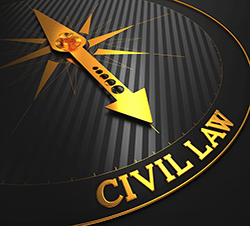Colorado Civil Court Records Search
Colorado civil court records play a crucial role in the legal landscape of the state. These records provide insights into various civil cases, the courts that hear them, and the processes involved in accessing them. In this article, we’ll explore the types of civil court cases in Colorado, the courts that handle these cases, how to search for civil court records online, and the privacy restrictions associated with public records.
Types of Civil Court Cases in Colorado
Civil court cases in Colorado can cover a broad range of non criminal legal disputes. Here is a breakdown of the most common types of civil cases heard in the state:
1). Contract Disputes: Cases arising from disagreements over various terms of a specific written contract, that typically include breach of contract claims.
2). Tort Claims: A Tort Claim is primarily considered a personal injury claims where one party is seeking compensation for harm caused by another, such as negligence, injury, or defamation of character.
3). Family Law Cases: This includes divorce proceedings, child custody disputes, domestic violence, guardianships, adoption cases, and various other family legal matters.
4). Property Disputes: These cover a multitude of issues related to property ownership, landlord-tenant disputes, and real estate transactions fall under this category.
5). Small Claims: Cases involving disputes for smaller amounts of money, typically handled in a more informal manner.
6). Class Action Lawsuits: These involve a group of people with common legal claims against a defendant.
7). Employment Disputes: These cover a variety of cases related to wrongful termination, discrimination, and wage disputes.
8). Consumer Protection Cases: Involving claims against Colorado businesses for unfair and deceptive practices, or defective products and services.
Colorado Courts Handling Civil Cases
Civil cases in Colorado are generally heard in the following courthouses:
1). Colorado District Courts: These are the primary trial courts for civil matters. There are 22 judicial districts in the state, each serving specific counties. District courts handle most civil cases, including family law and tort claims.
2). Denver County Court: This court specifically handles civil cases within Denver, including small claims and civil matters that do not exceed a certain monetary threshold.
3). Colorado Court of Appeals: While this court primarily hears appeals from district courts, it can also review certain civil matters as part of its appellate jurisdiction.
4). Colorado Supreme Court: As the highest court in the state, the CO Supreme Court hears appeals from the Court of Appeals and has jurisdiction over significant civil cases that require an interpretation of specific state laws.
How to Search For Colorado Civil Court Records Online
Accessing Colorado civil court records has become increasingly convenient with the advent of online databases. Here’s how you can search for these records:
1). Colorado Judicial Branch Website: The official CO Judicial website offers a searchable database of civil court records. Users can search by case number, party name, or attorney information.
2). PACER (Public Access to Court Electronic Records): For federal cases, PACER provides access to court documents and information about cases. However, it’s important to note that this is primarily for federal records and may not cover all civil cases at the state level.
3). Local Court Websites: Many district courts maintain their own websites with additional resources and access to case information.
4). Third-Party Websites: Various online services compile public records and provide access to civil court records. However, users should be cautious about accuracy and fees associated with these services.
Public Records and Privacy Restrictions
For the most part, civil court records are generally considered public records. This means that they can be accessed by anyone, either online or in person. However, there are important privacy restrictions and exemptions to consider when researching these records. Here are some of the important restrictions that should be noted:
Confidential Records: Certain records, such as those involving minors, domestic violence cases, and some family law matters, may be sealed or restricted from public access to protect the privacy of individuals involved.
Sensitive Information: Information that could pose a risk to personal safety or privacy, such as Social Security numbers, financial account details, and certain health information, is typically redacted from public records.
Sealing Orders: Parties in a case can petition the court to seal specific records. If granted, these records will not be available to the public.
Restricted Access: Some records may be accessible only to specific individuals, such as parties involved in the case or their legal representatives.
Conclusion
Navigating Colorado civil court records can seem complicated for those unfamiliar with the state's judicial system. But understanding the types of cases, the courts involved, and how to access records online can simplify the process. While most civil court records are public, it’s important to be aware of the privacy restrictions that protect sensitive information.


